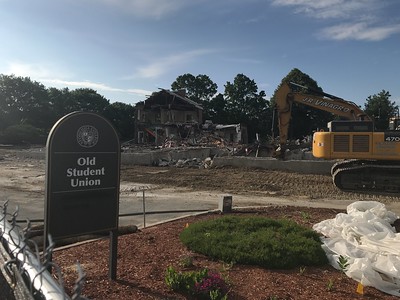Earlier this year, the Brookings Institution published an analysis of wages and earnings based on educational attainment at different stages in life. Researchers there studied the wage premiums that workers received if they graduated from college before the age of 24, by the age of 29, and after the age of 30, with a control group of individuals who never attended college at any age.
There were no surprises in the data. Those who graduated earliest enjoyed the highest overall lifetime benefits from graduating from college. Those who never attended college saw a rise in average earnings of 78% over 25 years. “Early” college graduates enjoyed a rise in average earnings of more than 220% over the same period.
People who graduated in their late-20s or after the age of 30 achieved a similar wage premium at the 25-year mark to those who graduated in their early 20s. These students started out on the same earnings trajectory as those who never attended college, but received significant salary increases once they graduated.
According to the Brookings Institution data, Black females were most likely to graduate from college later in life. In doing so, they unlocked the large wage premiums that other college graduates also enjoy.
The benefits of graduating from college later in life could pose a problem for community colleges, because they challenge the notion that four-year schools are mostly ill-equipped to serve non-traditional students. The competition for students is heating up and will become intense in the approaching decade. Finding and retaining enrollment is a life-and-death question for all but the largest and most prestigious of institutions. And under these circumstances, universities will develop strategies to attract and retain older students who are looking for what a university degree offers: higher earnings.
Competition for non-traditional college students will heat up
A speedy graduation isn’t always what non-traditional students are looking for. Rather, they’re looking for a pathway to better earnings that has a high probability of success. Community colleges fail here on multiple counts.
First, the pathway to better earnings may not run through a community college. Certain degree programs can return high wages, but many community colleges have fallen into the trap of offering workforce development rather than authentic education.
That approach doesn’t work for people who are looking for education options later in life. They have less time to make up for a decade or more of marginal earnings. They may have families, debts, or a desire to build a secure employment strategy. These students are less interested in working right now than they are in finding stable, high-wage employment.
Community colleges don’t always create a high probability of student success. With graduation rates hovering between the high-teens and mid-thirty percent range, community colleges offer students only a marginal chance at successfully completing a degree, or safely transferring to a four-year university. The older the student is, the more failing to complete a degree hurts. Sure, it wastes money, but more than that, a failed attempt at a degree wastes what these students already have little of: time. A person can make up lost money, but no one can make up lost time.
Community colleges must develop strategies to compete against universities that come looking for the non-traditional students. At risk are transfer students, and students in programs that overlap those offered by nearby universities. Community colleges are already dealing with dwindling enrollment. If they can’t produce programs that lead to high-wage jobs, non-traditional students who want a salary increase will easily find it at a four-year school.
Photo Credit: Jennifer Macaulay, via Flickr


























